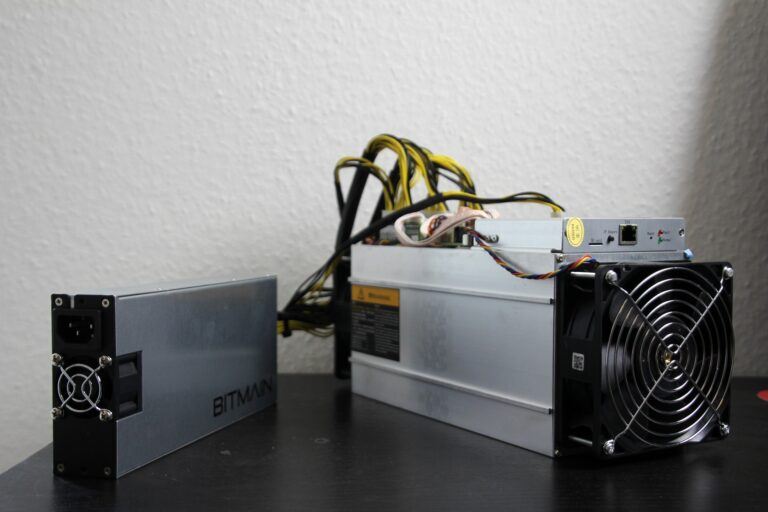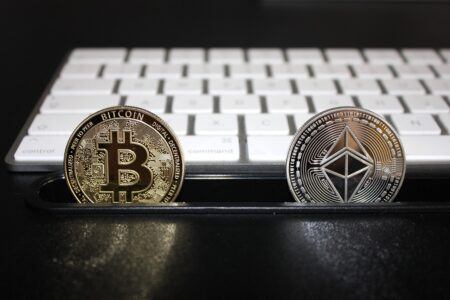The cryptocurrency news outlet Coingeek has claimed that Bitmain, the largest manufacturer of cryptocurrency application-specific integrated circuit (ASIC) miners, is “on the verge” of losing business relations with its sole supplier of vital circuit boards, the creatively named Taiwan Semiconductor Manufacturing Company (TSMC).
Coingeek has claimed such on the authority of “multiple sources close to Bitmain,” who remain anonymous. And while leaning on anonymous sources is sometimes fine, depending on the credibility of the medium, in this case the context of these assertions is cause for concern.
The most obvious matter is that Coingeek’s owner, Calvin Ayre, has become a major player in the “war” that has developed in the Bitcoin Cash community, and which caused the split into BCHABC and BCHSV. Ayre’s Coingeek doubles as a Bitcoin Cash mining pool, deploying its hash power on one side of the battle line. Bitmain, a manufacturer but also mining pool operator with a large stake in Bitcoin Cash, happens to be standing on the other side of the Bitcoin Cash ‘Hashwar’.
Clearly, journalistic objectivity for Coingeek is going to be tough in such a situation. With that in mind, how bad is it really for Bitmain?
Bad but not that bad
Bitmain’s fiduciary health has been a hot topic in the last few months, after it announced plans to hold an initial public offering (IPO) on Hong Kong’s stock exchange. Ever since then, it does indeed seem that all hell has broken loose for the company, which has become undoubtedly one of the most scrutinized entities in the cryptoasset industry.
To wit, BitMEX, the dominant bitcoin futures trading market – according to a recent CryptoCompare exchange report, the Seychelles-based exchange hosts over 90% of bitcoin-to-USD futures trading – has recently deployed its well regarded research capacities to look into Bitmain.
To some extent, the BitMEX research concurs with Coingeek’s negativity regarding Bitmain’s relationship with TSMC. BitMEX sees the payments to TSMC as an alarming “drain on working capital,” having paid $1.3 billion in total to TSMC during the first half of 2018. Coingeek’s figures of a $300 million shortfall on a $1 billion payment can not currently be verified; but in order for this figures to be accurate, Q3 payments owed to TSMC would have had to increase by about $340 million versus Q2 payments due.
Given the development and production costs of Bitmain’s newly released 7nm miners – the first batch of S15’s seem to have sold out in a matter of days – such a payments hike does not seem impossible, although there are no public figures to verify Coingeek’s claim.
However, given how difficult it has been for Bitmain to successfully produce the competition-beating new miners, it seems questionable that TSMC would dump Bitmain at a time of such achievement. BitMEX, in its research, took pains to emphasize what a great struggle it has been for Bitmain to successfully research and issue new products in the face of growing competition, having failed three times during the past year to deliver a new product, losing hundreds of millions of dollars in the process. BitMEX research speculated that a final success with the 7nm product “could rescue Bitmain from a difficult business [environment].”
Another of Coingeek’s sticking points is a negative report by investment firm Sanford C. Bernstein & Co. (SBC), which Coingeek says “[suggested] the Chinese ASIC manufacturer’s prospects were so dire that TSMC should abandon favourable credit terms with Bitmain.” Bloomberg, which also reported on SBC’s cautionary evaluation of Bitmain, did not mention this specific recommendation, recapitulating only: “Bitmain risks losing its competitive edge, Sanford C. Bernstein & Co. analysts wrote in a report last month.”
The report referenced by Bloomberg, widely referenced among crypto media outlets (including this one), does not seem to be publically available anywhere, and so neither Bloomberg’s nor Coingeek’s reportage can be independently verified at present (Update: SBC has declined to furnish the report upon request).
Bad blood
It is not just that Bitmain’s prospects are less dire, or at least less provably dire, than Coingeek would have us believe. There is a question of style and affect.
Superlative statements like “We’re watching the beginning of the end for the once mighty Bitmain” do not fill one with confidence of impartiality, and Coingeek is clearly speaking with an agenda, calling into question the validity of any anonymous source they may claim.
Aesthetics aside, and as stated above, Coingeek and Ayre have also been some of the principal actors in the Bitcoin Cash war. Mud has been slung; Jihan Wu, Bitmain’s co-founder and main spokesperson, said in August that “Coingeek hires fiction writers, but not news reporters.” This is certainly not a stretch considering Coingeek now refers to ‘Bitcoin’ as ‘BTC coins’…
Which is not to say that Wu should be believed, either; but rather to say that, in this situation, a public and verifiable source is required. As it stands, the Coingeek article can’t be taken seriously on its own merits, further information is required.








